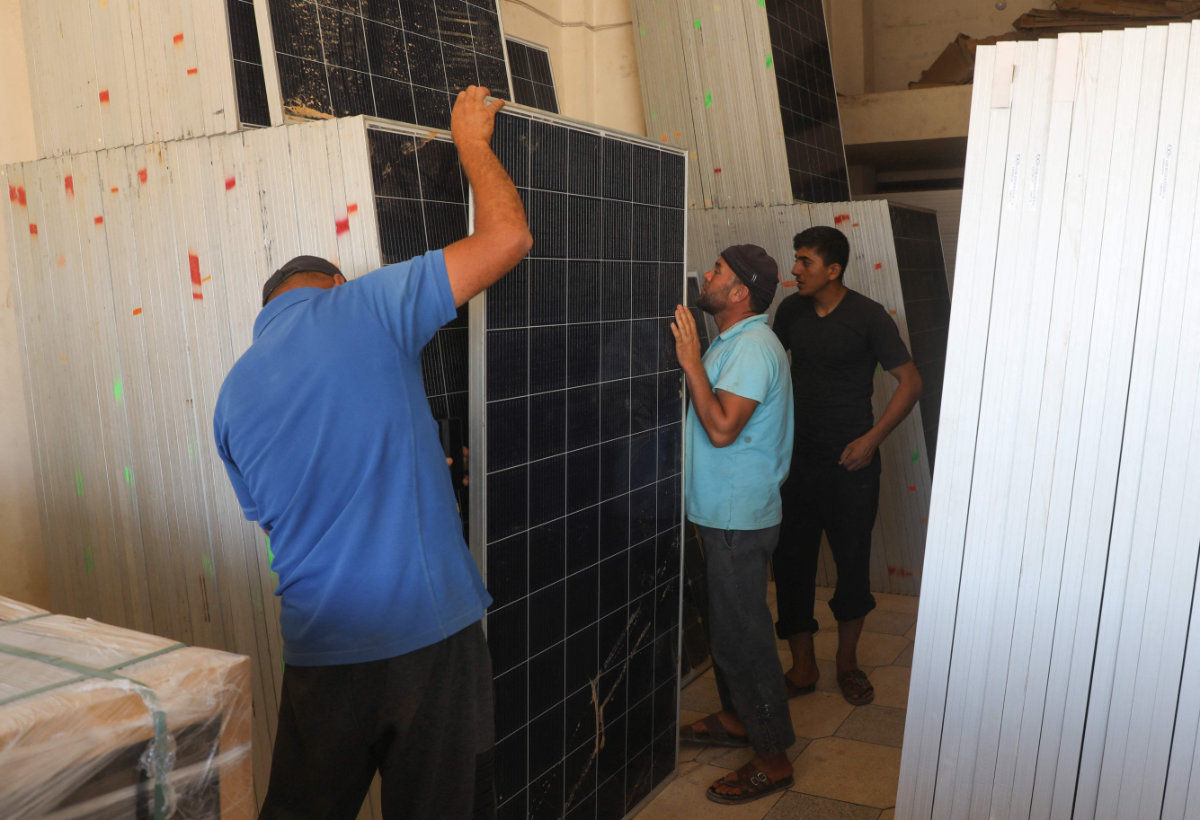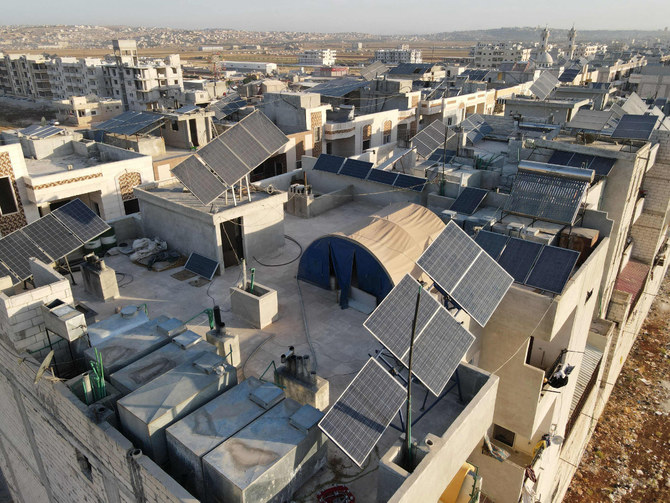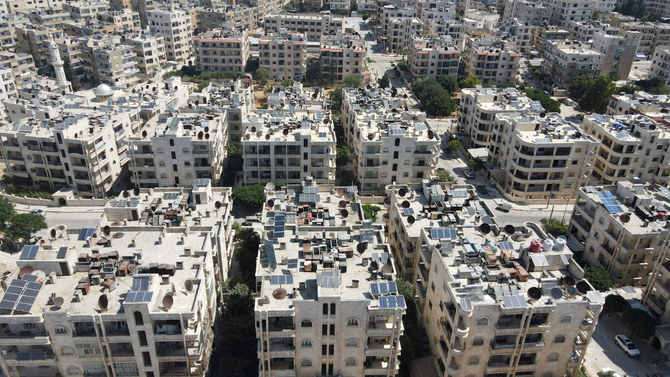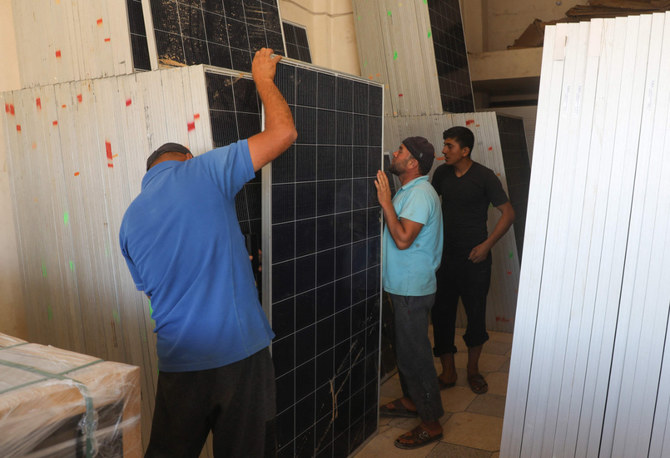KILLI, Syria: Huge solar panels poke out of pumpkin and tomato fields in Syria’s rebel-held northwest, where after infrastructure was destroyed during a decade of war, many have switched to renewable energy.
“We used to rely on diesel-powered generators, but it was a struggle with fuel shortages and price hikes,” said Khaled Mustafa, one of dozens of farmers who set up panels in the Idlib region.
“So we opted for solar power instead,” he said.
More than three million people live in the Idlib region in Syria’s northwest, much of which is controlled by jihadist forces and other rebels.
Across Syria, at least 90 percent lack a stable power supply, according to the United Nations’ Development Programme (UNDP).
In rebel areas, there is little hope of state-provided electricity.
Instead, the dark blue silicon panels have become common — installed on roofs, in hospitals or between tents in massive displacement camps.
Once small and smoky diesel generators used to power many homes.
But with regular fuel shortages sending prices soaring, solar panels are now viewed as a cheaper, more efficient and reliable alternative.
In Mustafa’s plot, solar panels hooked to rotating metal plates turn to follow the movement of the sun.

Solar panels are installed in agricultural fields in the village of Killi, Idlib province, Syria. (AFP / Aaref Watad)
They are among 200 solar panels purchased two years ago by an agricultural cooperative of nearly 20 farmers, costing some $4,000.
The panels power water pumps from a well, irrigating three hectares (seven acres) of cooperative farmland, as well as neighboring fields.
“Even if (state) electricity is restored, solar energy will remain cheaper,” said Mustafa.
Renewable energy sources
Syria’s electricity production was slashed by at least half during the conflict, but as fighting has calmed, renewable energy sources have increased, the UN says.
“Since armed clashes have decreased, and most of the country is in a more stable situation, solar energy production has spiked as a valid alternative,” UNDP said.
In regime-controlled areas, solar panels provide power for both homes and public institutions like universities.
As for those under rebel control, one survey found eight percent used solar as the main source of power in their homes, according to a report in the Education and Conflict Review, published by Britain’s University College London.
It also found a tenth of people used solar for heating water, and a third of people used solar as a secondary source of power, for lighting and charging batteries.

Workers store solar panels to be sold in a shop in the town of Dana, Idlib province, Syria, on June 10, 2021. (AFP / Aaref Watad)
In the rebel-held town of Dana, shimmering solar power installations cover rooftops.
“Sales increased by 300 percent between 2018 and 2021,” said solar panel salesman Abdulhakim Abdul Rahman. Farmers account for most of his clients.
A single agricultural project can require “100 panels, sometimes even 500,” the trader said.
Abdul Rahman said the panels he imports — mostly from Turkey, but also from Germany and China — can last up to 20 years.
Vital for hospitals
In his small apartment, Zakariya Sinno turns on a ceiling fan and blasts Syrian revolutionary anthems from a loudspeaker to show off the power of his solar set-up.
Like many of his neighbors, he has installed three panels on his roof.
“It’s enough to power the fridge, the washing machine, and lighting,” said Sinno.
Hospitals have also installed solar panels.
In 2017, the Union of Medical Care and Relief Organizations (UOSSM) launched its “Syria Solar” initiative to introduce renewable power for Idlib’s hospitals.
It has since installed 480 panels in one general hospital, and 300 others in a separate orthopaedic facility.
It has also helped more than 40 other clinics in Idlib and northern Aleppo with technical assistance, so they can install solar systems.
Even if fuel shortages mean generators grind to a halt, solar power keeps “sensitive hospital departments, namely intensive care units, operating rooms and emergency departments” functional, said Talal Kanaan, a founder of the Syria Solar initiative.
“With solar energy, you can cover between 30 to 40 percent of the hospital’s energy consumption,” he said.


















